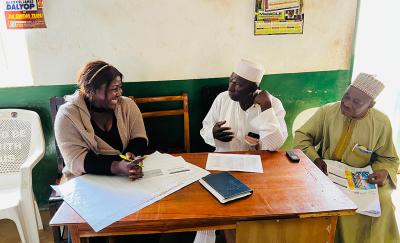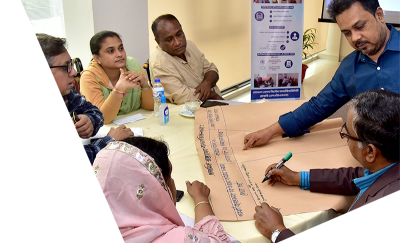Telemedicine: A Lifeline for Ukraine's Health System Amidst War


Russia's invasion has severely disrupted Ukraine’s health sector, as thousands of highly trained health providers have emigrated or been displaced. Ukraine's Ministry of Health says that over 1,150 medical facilities have been damaged or destroyed as of March 2023. People often hesitate to leave their homes to seek medical attention due to the ongoing air strikes, and a new category of patients has emerged—those injured by bullets, bombs, or debris.
Telemedicine is now a crucial tool to connect people with healthcare during this crisis. Digital technologies enable doctors to meet with patients remotely, view medical imaging results on a screen, and consult with specialists elsewhere via video conference. As a result, many Ukrainians still receive high-quality healthcare despite the limitations imposed by the war.
Foreign companies, eager to assist the war-torn country, donated telemedicine equipment and licenses for Ukraine. With assistance from the USAID Local Health System Sustainability Project (LHSS), led by Abt Global, the Ministry of Health has created a standardized process to assess, select, and safely deploy these technologies.
Abt holds training sessions and provides 24/7 technical support for patients and health providers to ensure appropriate use of telemedicine solutions. As of March 2023, Abt has helped train over 1,000 medical workers in nearly 300 health facilities, resulting in more than 3,000 sessions with patients.
Medical professionals, such as Dr. V., were skeptical of the equipment at first, thinking that mastering a new technology would be time-consuming and overwhelming. But he revised his thinking once he began using it to save the lives of patients he'd never even seen or touched.
"There was no time for me to make a trip to the hospital the patient was at," Dr. V. recalled of the first time he tried the new option. "I decided to use [the] recently installed telemedicine platform. I was able to join the surgery in real-time, see the issue, and assist my colleague in conducting the surgery remotely."
Over the next year, Abt plans to gradually transfer to a local entity the responsibility of supporting the use of donated telemedicine solutions—ensuring the sustainability of Ukraine's telemedicine program during the ongoing war and in the post-war period.
Note:
To avoid jeopardizing the safety and security of the health provider, their names and locations have not been disclosed. You can read the full-length version of this story here.
Read More

Pathways to UHC: Nigeria’s State and Local Approaches to Financing Integrated HIV Services and Primary Health Care
Nigeria’s state and local government-driven approaches to integrated primary health care are transforming financial protection and access for vulnerable populations, setting a replicable model for sustainable universal health coverage.

Building Climate Resilience Through Private Sector Partnerships
The Partnership for Climate Action, led by USAID CACCI, helps the private sector contribute to climate resilience through investment and innovation.

Health Systems Research (HSR) 2024
Abt Global is exhibiting and presenting at Health Systems Research (HSR) in Nagasaki, Japan in November 2024.

The 29th Conference of the Parties to the United Nations Framework Convention on Climate Change (COP29)
Abt will join governments, the private sector, and civil society at the 29th Conference of the Parties to the United Nations Framework Convention on Climate Change (COP29) this November to accelerate climate action.